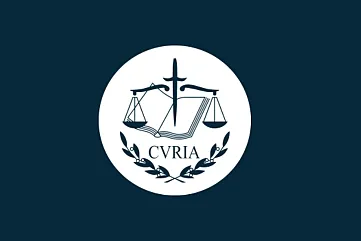Court of Justice
Tuesday 26th February
Judgments in Cases C-202/18 Rimšēvičs v Latvia & C-238/18 ECB v Latvia
Removal from office of the Governor of the Latvian Central Bank
There will be a press release for these judgments
Ilmārs Rimšēvičs was Latvia’s central bank governor and as such a member of the Governing Council of the European Central Bank. In February 2018, the Latvian Anti-Corruption Authority (KNAB) adopted a decision which removed Mr Rimšēvičs, indefinitely, from his position as Governor of the Bank of Latvia. The result of this decision was that he automatically lost his position as member of the Governing Council of the ECB.
Mr Rimšēvičs and the ECB consider that the decision is unlawful as it infringes, amongst other things, Article 14.2 of Protocol 4 on the Statute of the European System of Central Banks and of the European Central Bank. Article 14.2 provides: ”a Governor may be relieved from office only if he no longer fulfils the conditions required for the performance of his duties or if he has been guilty of serious misconduct”.
Article 14.2 also provides that a decision to remove a Governor from office may be referred to the Court of Justice by the Governor and the ECB on the grounds of infringement of the Treaties. Both Rimšēvičs and the ECB have made such referrals.
Mr Rimšēvičs considers that none of the conditions of Article 14.2 were satisfied. The ECB argues that the decision infringed Article 14.2 as Mr Rimšēvičs was removed from office before a conviction against him had been handed down by an independent court, and without exceptional circumstances justifying that removal.
The ECB also applied for interim measures in order to preserve the normal functioning of its decision-making until the Court’s ruling. On 20 July 2018, the Vice President of the Court ordered the Latvian authorities to suspend the measures which prevented him from naming a replacement for his role on the Governing Council of the ECB.
Tuesday 26th February
Judgment in Case C-497/17 Oeuvre d’assistance aux bêtes d‘abbatoirs
Use of label ‘organic farming’ for meat derived from animals slaughtered without prior stunning according to the rites of Islam
There will be a press release for this judgment
A French association engaged in the protection of animals destined for human consumption lodged an application with the Minister for Agriculture of France and the French National Quality and Origin Institute in order that these prohibit the use of the label ‘organic farming’ for meat derived from animal slaughtered without prior stunning according to the rites of Islam.
The requests have been implicitly rejected, so the association brought an action before the French courts seeking annulment of those decisions, pointing out that the meat at issue does not meet the requirements laid down by the EU law for products bearing the label in question.
Seized by the dispute, the Administrative Court of Appeal of Versailles questions the Court of Justice if EU law permits the use of the European label ‘organic farming’ in relation to products derived from animals which have been slaughtered in accordance with religious rites without first being stunned.
Thursday 28th February
Opinion in Case C-649/17 Amazon EU
Availability of online sellers
There will be a press release for this Opinion
Under an EU Directive (2011/83/EU), a consumer is bound by an online contract only in the case where the trader provided him with a phone number, a fax number and an email address, provided that the trader has such numbers or address.
A German consumer protection organisation sued Amazon in Germany claiming that, around 2014, Amazon had failed to comply with the Directive since it had not appropriately provided consumers with a phone number and a fax number. In fact, when calling Amazon, consumers were either asked to give their own phone number for a call-back or to get through an excessively long and complicated identification process. In addition, Amazon did not provide consumers with a fax number at all.
The German consumer protection organisation asked the German Courts to prohibit Amazon from continuing this practice. These Courts wish to know from the Court of Justice if the Directive requires an online seller to provide in all circumstances consumers with a phone and a fax number or it empowers sellers to use other communications channels (e.g. chat conversations, call-backs) in lieu of those expressly mentioned in the Directive.
Thursday 28th February
Hearing in Case C-306/18 KORADO
Customs classification of a radiator connector
In November 2015, KORADO, a Czech company, requested the Czech customs authorities to issue binding tariff information in relation to customs classification of radiator connectors.
The Czech customs authorities classified the connectors as accessories by applying a Commission Implementing Regulation (2015/23/EU) to the Combined Nomenclature (the EU’s customs classification system).
The Czech company however alleges that the connectors in question should have been classified as a part of a radiator rather than accessories to it since a radiator with which they are used cannot be operated without them. It has therefore called into question before the Czech Courts the appropriateness and, hence, the validity of the Implementing Regulation on which the decision of the Czech customs authorities had been based.
The Krajský soud v Ostravě, which deals with this case, has asked to Court of Justice to rule on the validity of the Implementing Regulation.
Tuesday 5th March (9 am)
Hearing in Case C-482/17 Czech Republic v Parliament & Council
Validity of the Directive on control of the acquisition and possession of weapons
In May 2017, the European Parliament and the Council (by way of adopting the Directive 217/853/EU) modified the Directive on control of the acquisition and possession of weapons (91/477/EEC), which lead to the prohibition of certain semi-automatic weapons and the matching magazines as well as to the introduction of more stringent rules in respect of deactivated and alarm weapons.
The Czech Republic is contesting before the Court of Justice the validity of the modifying directive, which, according to this Member State, should not have been adopted as a measure aiming at eliminating obstacles to the internal market since the new rules introduced do not pursue this objective but solely aim to prevent crime and terrorism. In addition, the Czech Republic alleges that the EU legislator breached the principle of proportionality, in particular, insomuch as it prohibited semi-automatic weapons which had never been used in the EU for committing terrorist acts.
Thursday 7th March
Judgment in Case C-420/16 P Izsák és Dabis
European citizens’ initiative to protect minorities
There will be a press release for this judgment
Under the EU Treaty, not less than one million citizens who are nationals of a significant number of Member States may take the initiative of inviting the European Commission, within the framework of its powers, to submit any appropriate proposal on matters where citizens consider that a legal act of the Union is required for the purpose of implementing the Treaties. Prior to starting to collect supporting signatures, the organisers must register the initiative with the Commission, with particular regard to its subject and aims.
By making use of these rules, individuals from the Hungarian minority in Romania asked the Commission to register a European citizens’ initiative whose objective is that the EU’s cohesion policy pay particular attention to regions which, by their national, ethnic, religious or linguistic features, considerably differ from the regions surrounding them. The Commission refused however to register the initiative on the grounds that it fell manifestly outside its powers to submit a proposal to adopt a legal act for the purpose of implementing the Treaties.
The aforementioned individuals asked the General Court to annul the Commission’s decision to refuse the registration and to order the Commission to register the initiative. By judgment of 10 May 2016, the General Court dismissed the action in question.
The two individuals have appealed the General Court’s judgment before the Court of Justice.
General Court
Tuesday 26th February
Judgment in Cases T-679/16 Athletic Club Bilbao v Commission & T-865/16 FC Barcelona v Commission
Illegal State aid provided to Spanish football clubs
There will be a press release for these judgments
By decision of July 2016 the Commission set out that Spain, in breach of EU competition rules, had provided State aid to seven football clubs, namely, Atlético Bilbao, FC Barcelona, Real Madrid, Atlético Osasuna, Valencia, Elche and Hercules.
As for Atlético Bilbao, FC Barcelona, Real Madrid and Atlético Osasuna, the State aid consisted in corporate tax privileges resulting from their being treated as non-profit organisations, which pay a 5% lower tax rate on profit than limited liability companies, the corporate form in which other clubs are operated.
The Commission also established that the four clubs concerned benefitted from this lower tax rate during over twenty years and ordered Spain to recover from them the tax benefits in question. Nevertheless, the Commission estimated that the amounts that needed to be recovered were limited and would not exceed € 5 million for any of the clubs concerned.
The majority of the clubs in question – including Atlético Bilbao, FC Barcelona and Real Madrid – have challenged the Commission’s decision before the General Court. Today will be pronounced the judgments in FC Barcelona’s and Atlético Bilbao’s cases.
Zdroj: CURIA

















